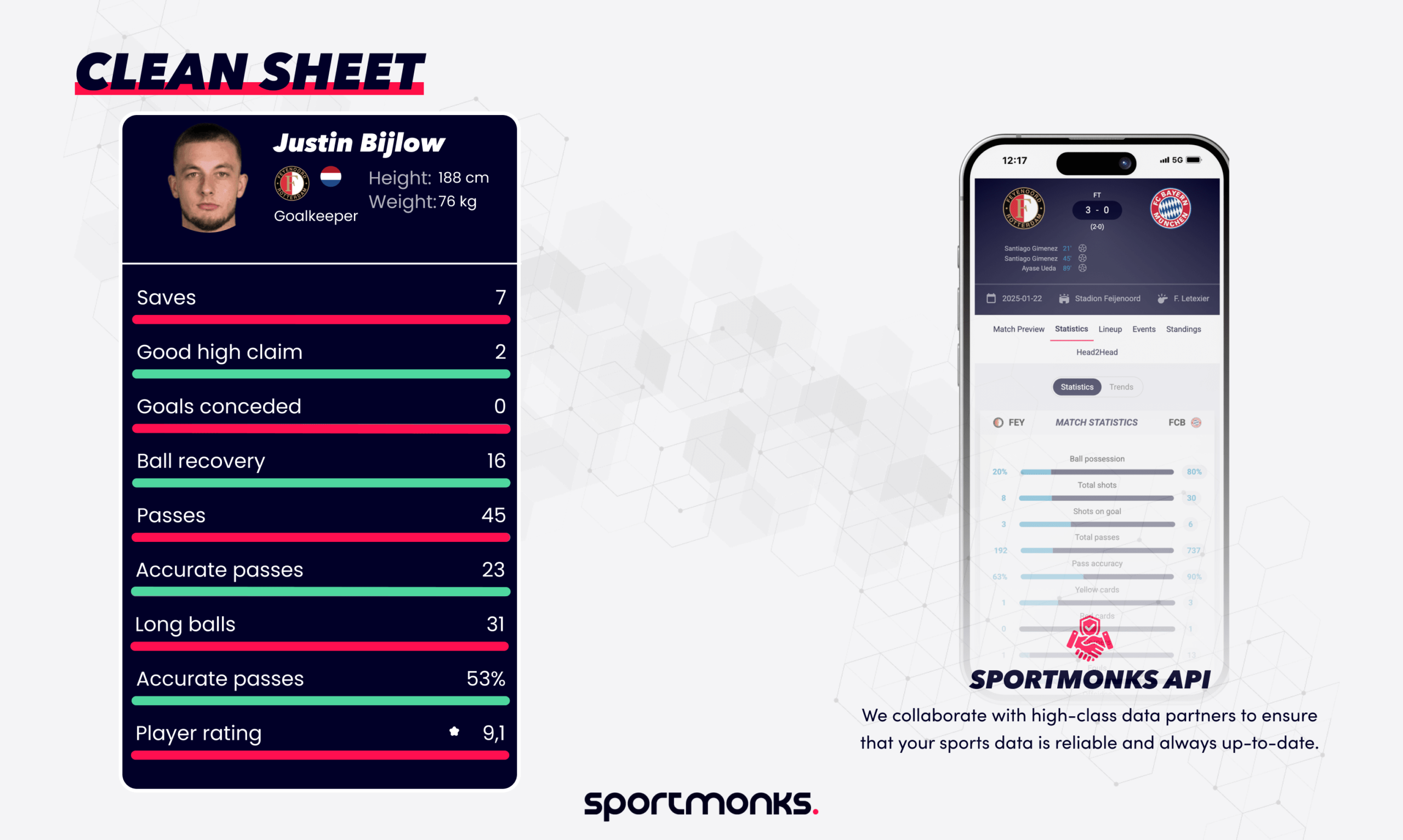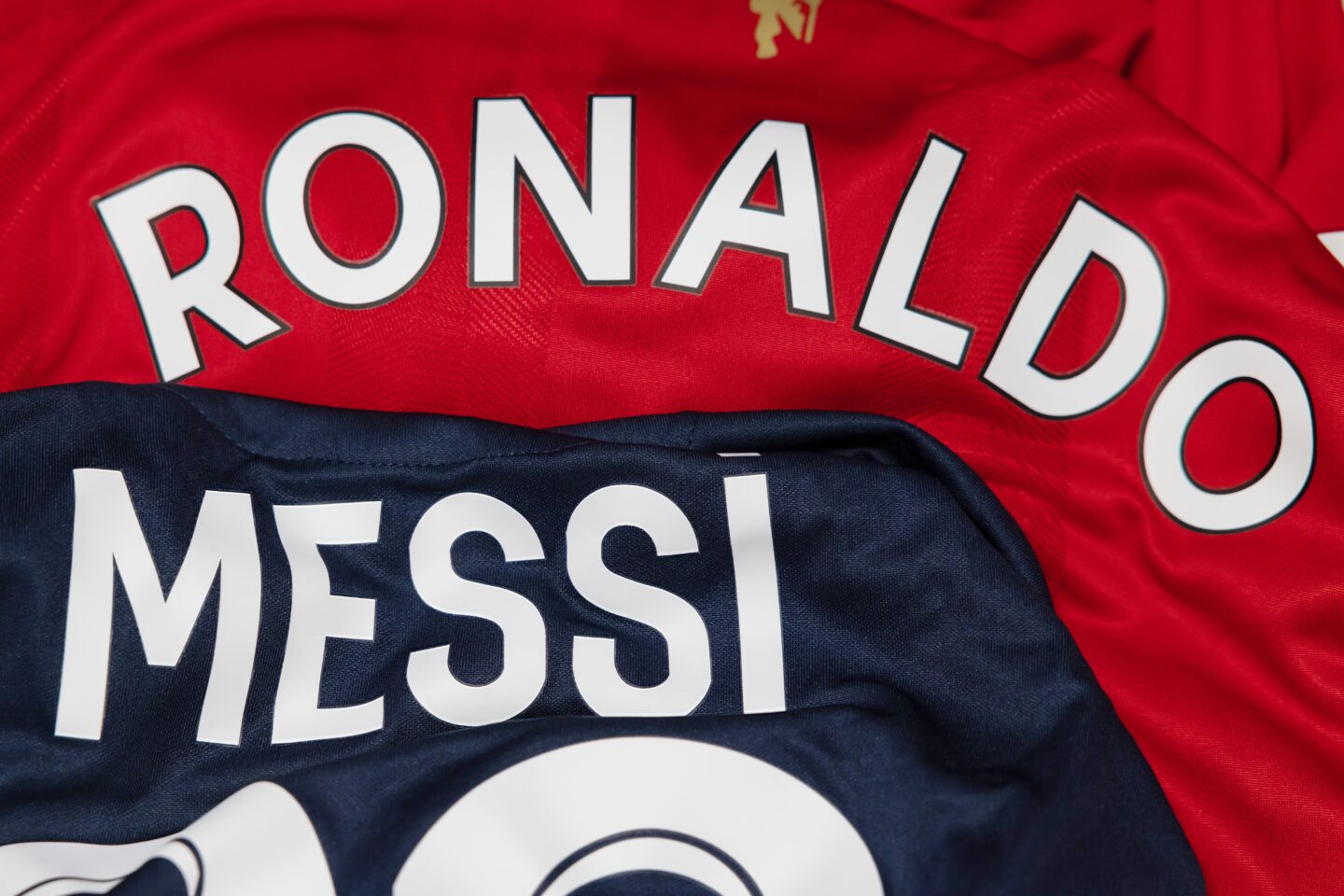
Contents
Breaking down a clean sheet
A clean sheet is simple, but here’s the details:
– Zero goals: The other team can’t score in the regular 90 minutes, or any extra stoppage time. Goals in extra time or penalties don’t count against a clean sheet earned in the main part of the match.
– Goalkeeper’s credit: The goalkeeper gets a lot of the credit, but the whole defence helps. If the goalkeeper is substituted out, they still get the one if no goals go in (Although in some fantasy leagues like the FPL), he has to play a minimum of 60 mins to record the clean sheet points).
– Own goals ruin it: If a player accidentally scores on their own team, it’s not a clean sheet. It doesn’t matter who scores; a goal is a goal.
– Complete match: A clean sheet is for the full 90 minutes and stoppage time. If a game is stopped and replayed, the one from the first game doesn’t carry over.
– Everyone plays a part: Even though the goalkeeper gets attention, a clean sheet is a team effort. Everyone, from defenders to attackers, helps defend.
– Sportmonks API definition: With our Sportmonks football API, a clean sheet is attributed to a player if they were on the field when the team maintained a clean sheet. For example, if Virgil van Dijk is substituted at 0-0 and the team later concedes, Van Dijk will still be credited with a clean sheet in his match statistics. This reflects the player’s contribution during their active time on the pitch.
Why clean sheets matter
It is more than just a number; it means a lot to a team.
– Strong defence: Getting lots of clean sheets shows a team has a solid and organised defence. It means they have good teamwork and know how to defend.
– Confidence boost: They make the team feel confident and strong. It reinforces their defensive plan and makes them feel like they’re hard to score against.
– Getting points: It guarantees at least a draw, and often leads to a win. Teams that don’t let in many goals win more games.
– Flexible tactics: A strong defence lets teams take more risks when attacking, knowing they’re less likely to concede.
– Goalkeeper’s skill: They show how good a goalkeeper is at saving shots, controlling the area, and organising the defence.
– Good team spirit: A run of clean sheets boosts team morale and creates a positive vibe. It builds a sense of unity.
– Putting pressure on opponents: When a team gets a one, it makes the other team feel pressured and frustrated and more likely to start making errors.
What helps a team get a clean sheet
Getting a clean sheet takes everyone working together. Here’s what helps:
– Good goalkeeping: The goalkeeper needs to save shots, control the area, and pass the ball well. They also need to talk to the defenders.
– Organised defence: The defenders need to be in the right positions, mark players well, and move together. They need to stay in shape and stop attacks.
– Following the plan: Players need to stick to the team’s tactics, stay in their spots, and do their defensive jobs. This means tracking players, intercepting passes, and tackling.
– Midfield help: Midfielders need to help defend, intercept passes, and break up attacks. They need to run back and support the defence.
– Attackers defending: Even attackers help by pressing opponents, tracking back, and defending set pieces.
– Talking to each other: Players need to communicate clearly to stay organised. This means talking, using signals, and moving together.
– Defending set pieces: Teams need to defend corners and free kicks well to stop goals. This means marking players, clearing the ball, and being strong in the air.
– Weak opponent attack: Sometimes, the other team isn’t very good at attacking, which makes it easier to get a clean sheet.
– Luck: Sometimes, luck plays a part. A deflection,a player slipping, a missed shot, or a great save can help.
– Staying focused: Players need to stay focused for the whole game. Losing focus can lead to mistakes and goals.
Looking deeper at clean sheets
They aren’t just about whether a team got one or not. Studying them can tell us a lot about how well a team defends.
– How often and how steady: The number of clean sheets a team gets shows how strong their defence is. But it’s also important to see how consistent they are. A team that gets them regularly is more reliable than one that only gets them sometimes.
– Home vs. away: Looking at clean sheets at home compared to away games shows how well a team adapts. Some teams defend better at home because they’re comfortable and have the crowd’s support.
– Opponent strength: It matters who the opponent is. Getting a clean sheet against a strong attacking team is more impressive than against a weaker team.
– Goals allowed: This shows how efficient a team’s defence is. If they let in a lot of goals when they don’t get a clean sheet, it shows they have weaknesses.
– Clean sheet streaks: Looking at how many a team gets in a row shows their momentum and confidence. Long streaks mean the defence is well-organised and disciplined.
– Goalkeeper’s role: Even though it’s a team effort, the goalkeeper is important. Analysing their saves and how they control the area shows their role in clean sheets.
– Defensive tactics: Studying the team’s formation and tactics in games with clean sheets shows what works best for them.
– Impact on results: Seeing how they connect to match results shows how much they help a team get points.
– When goals happen: Looking at when goals are conceded (early, late, etc.) can show weaknesses in focus or lapses in defence.
– Visualising data: Tools like heatmaps can show where shots were conceded and how the team defended, giving a visual picture of their strengths and weaknesses.
Clean sheets in different situations
Clean sheets happen in different ways depending on the game, the league, and how the team plays.
League and competition differences
– Leagues with strong defence: Some leagues, like Serie A in Italy, have a history of strong defence, so there are usually more.
– Leagues with strong attack: In leagues like the Premier League, where teams attack a lot, there might be fewer clean sheets, but they’re harder to get because the attacks are strong.
– Cup competitions: In cup competitions like the Champions league where teams can be eliminated, they might focus more on defence, leading to more clean sheets.
Home vs. away games
– Home advantage: Teams often get more at home because they have their fans and know the pitch well.
– Away success: Getting one away from home is harder, so it’s seen as more impressive.
Opponent’s attack
– Tough opponents: Getting one against a team that scores a lot, or is in the same bracket for trophies is a big deal.
– Weaker opponents: Clean sheets against weaker teams are expected, but they still matter. You never know how the match might end if you concede one.
Game situation and tactics
– Protecting a lead: If a team is winning by a lot, they might switch tactics and focus more on defending to keep the clean sheet.
– Fighting to stay up: Teams trying not to be relegated might also focus on defence.
– Defensive style: Teams that play defensively will probably get more clean sheets than teams that attack a lot.
Weather and field
– Bad weather: Rain or wind can make it hard to attack, so there might be more clean sheets.
– Bad pitch: A bad field can also make it harder to attack, leading to more defensive games.
Players and injuries
– Goalkeeper form: A goalkeeper who’s playing well helps the team get clean sheets.
– Injuries: If important defenders or defence-minded players are injured, it’s harder to get them. An example would be Manchester City without Rodri and Diaz.
Time of the season
– End of season: Teams might focus more on defence towards the end of the season when every point matters.
– Start of season: At the beginning of the season, teams might try new things, so there might be fewer clean sheets.
Clean sheets: More than just numbers in football
They aren’t just stats; they’re a big part of how we understand and enjoy the game. They affect how teams play and how fans feel.
History and tactics
– Mourinho’s tough defence: José Mourinho’s Chelsea team in the mid-2000s made clean sheets famous. His focus on organising the defence made it super hard to score against them. Their record of 25 clean sheets in the 2004-05 Premier League season showed how a strong defence wins championships. This made teams realise that they are important, not just something that happens by chance.
– Italian defence: Italian teams are known for defending well, and clean sheets are a big source of pride. This tradition has influenced how people see defensive football, linking it with smart tactics.
– Set-piece strength: Teams today are getting better at defending set pieces like corners and free kicks. Arsenal, under their coach Mikel Arteta, is a good example. They don’t concede many goals from set pieces anymore, which helps them get more. This has changed how teams practice and how fans think about defending these situations.
Fans and competition
– Fantasy football: In fantasy football, they are valuable. Goalkeepers and defenders get you points (4 points) for each one. This makes them a big deal for fans.
– Tie-breakers: In many competitions, if teams are tied, they can decide who wins. This makes every game important, as teams try hard not to concede goals.
– Mental edge: A team with lots of shutouts can intimidate opponents. The other team starts to worry about whether they can even score! This mental advantage is important in big games. Imagine a team that hasn’t conceded a goal in 8 matches – the other team will be nervous and trying hard to figure out how to penetrate that defence.
– Fan excitement: Fans love them almost as much as goals. They show how strong the defence is, how good the tactics are, and how well the team works together. A 1-0 win can be just as exciting as a game with lots of goals. Often, when a team is close, you can hear the fans cheering for every tackle, every clearance, every minute closer to the final whistle.


